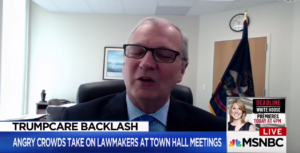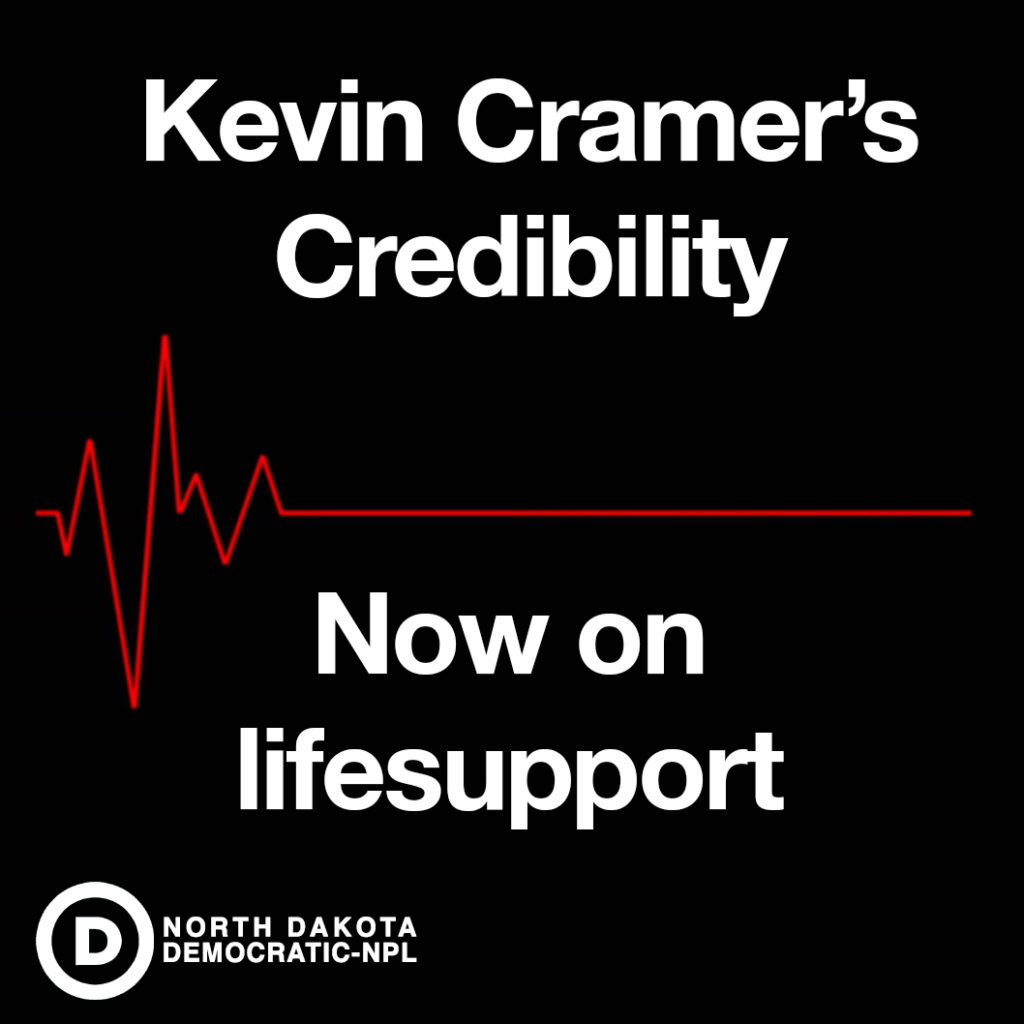CBO report: Republican health care bill would leave 23 million more Americans uninsured
Congressman Cramer was key architect of bill that CBO says guts protections for pre-existing conditions; increases premiums by 20% next year; and slashes Medicaid by $834 billion
CBO: “Less healthy people would face extremely high premiums” under GOP health care bill
(BISMARCK, ND) – The nonpartisan Congressional Budget Office (CBO) today released its official analysis of the Republican health care bill, which Congressman Kevin Cramer helped author and pass through the U.S. House of Representatives on a narrow, party-line vote.
“Today’s CBO analysis makes it absolutely clear that the Republican health care bill would increase costs and reduce the quality of health care for thousands of North Dakotans, while putting care entirely out of reach for thousands more,” said Democratic-NPL Executive Director Robert Haider. “According to the CBO, this legislation which Congressman Cramer helped write, would effectively eliminate protections for preexisting conditions in many states, bring instability to the health insurance marketplace, and deny coverage to thousands of individuals, families, seniors, and veterans across our state. It is yet another example of Cramer looking out for his own interests – and the interests of his special interest allies in Washington, D.C. – rather than doing what’s best for the people he’s supposed to represent.”
According to the CBO, the Republican health care bill would be detrimental to millions of Americans with pre-existing conditions, those who rely on Medicaid for their health coverage, and those who struggle to afford health premiums, such as seniors citizens, veterans and other vulnerable groups:
-Under the Republican health care bill, the number of uninsured Americans would increase by 23 million by 2026, with 14 million Americans losing coverage within the next year alone.
-Protections for patients with pre-existing would be gutted and “less healthy people would face extremely high premiums,” according to the budget office.
-The Republican health care bill would cut Medicaid by $834 billion, in addition to the $600 billion cut to Medicaid already proposed in the president’s budget released yesterday. In North Dakota alone, 93,000 people rely on Medicaid for health coverage, including 36,000 children. Many of these 93,000 North Dakotans would face the possibility of losing their care.
-Health insurance premiums would increase by 20 percent next year, and 5 percent the following year, after which health insurance premiums would vary widely on a state-by-state basis due to instability in the health insurance market.
# # #



